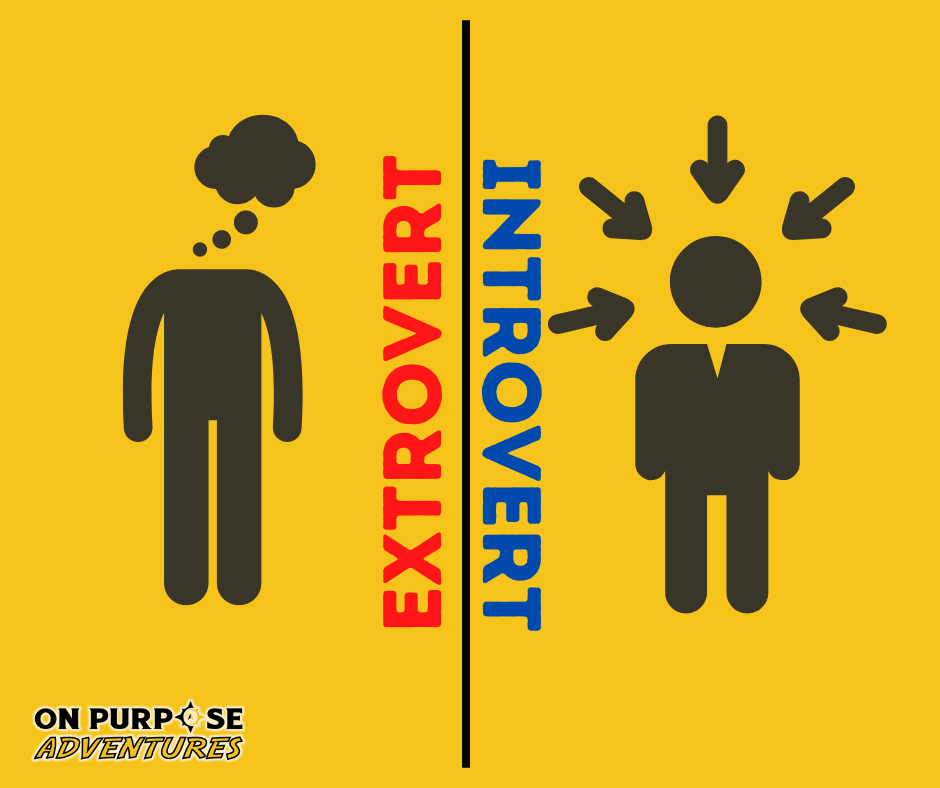
Do Extroverts or Introverts Make Better Leaders?
I'm going to start off this blog by answering the clickbait title... Both introverts AND extroverts can make excellent leaders. They excel in different ways, but they also both suffer from different weaknesses.
Introverts and extroverts approach leadership in different ways. At opposite ends of the personality spectrum, both will have to adapt their personality traits to fit individual leadership goals.
In this article, we will explore the differences between introverted and extroverted leaders and the benefits that each style can offer.

How do introverts and extroverts handle leadership differently?
- Introverts tend to lead with thoughtfulness, taking the time to consider multiple perspectives and plan ahead. They are often excellent listeners, and they use their introspective nature to carefully consider the impact of their decisions. They prefer to focus on inspiring their team through deep conversations and meaningful connections. Introverted leaders tend to be more patient, and they are able to think things through before acting. This makes them well suited for roles that require careful consideration and planning.
- On the other hand, extroverts are energized by being around people and prefer a more hands-on, collaborative approach. Extroverted leaders are better with social connections and are often more dynamic and energetic. They excel at rallying their team with enthusiasm. Extroverts tend to be naturally charismatic so they can quickly gain the support of their team. Unlike introverts, extroverted leaders are comfortable taking risks and making quick decisions, which makes them well suited for leadership roles that require quick thinking and action.
Leaders need to be deliberate in their approach.
While introverted and extroverted leaders both have their strengths, it is important to note that neither style is inherently better than the other. Both styles have the potential to be effective leaders, and both styles can bring unique benefits to an organization. The key to effective leadership is finding a balance between these two styles.
For example, introverted leaders may struggle with tasks that require them to be more outgoing and assertive, such as public speaking or networking. In these situations, they may benefit from adopting qualities of extroverted leaders, such as being more confident and assertive.
In another instance, an extroverted leader might struggle with a task that requires careful consideration and reflection, such as decision-making or problem-solving. In this situation, they may benefit from adopting qualities of introverted leaders, such as being more reflective and thoughtful.
The key to finding the right balance between introverted and extroverted leadership styles is understanding your own strengths and weaknesses and developing a leadership approach that best utilizes those strengths. This may require seeking out new experiences and opportunities that challenge you and help you to develop new skills. It may also require seeking out the advice and guidance of more experienced leaders who can help you to identify and address your weaknesses.
The Importance of Personality Diversity

In the book "Quiet: The Power of Introverts in a World That Can't Stop Talking," Susan Cain's research shows that there is actually an increase in performance when an introverted leader has an extroverted team and, vice versa, when an extroverted leader has an introverted team. This shows that even within a single team, having diverse personalities creates better results than the leader and team all being the same personality type. You need some people on a team who want to be methodical and thoughtful while others push the team to take more risks and push boundaries. It's a give and take that an extrovert leader with an introvert team or introvert leader with an extrovert team are able to navigate well.
The business world has long considered extroverts to be the best fit for leadership roles. Think of the best sales person consistently being promoted over the tech guru. In his book "The Introvert's Edge: How the Quiet and Shy Can Outsell Anyone," Matthew Pollard emphasizes the unique advantages that introverts bring to the sales and business development process. Pollard argues that introverts are often overlooked in these fields, but that they have the potential to excel and even outperform extroverts.
Pollard's work highlights the importance of understanding and embracing the differences between introverted and extroverted leaders, and demonstrates how both styles can bring unique benefits to an organization.
In conclusion, both introverts and extroverts have unique strengths that bring out the best in their teams. The best leaders are those who are able to understand and use both leadership styles in an appropriate and effective manner.
Many of the definitions and examples in this article are generalizations. True leaders can flex and adapt as needed. Many examples referenced above are skill sets that any individual can work to improve such as speaking in public or being able to network.
Does your leadership style more resemble that of the introvert or extrovert? What is your take on personality types when it comes to leadership positions? Does the personality type matter more or less than the willingness to learn and adapt?
Want to learn how we can help leaders and teams of all personality types excel?









